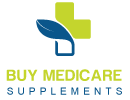Prescription Drug Coverage
Medicare prescription drug coverage is an optional benefit. Medicare offers prescription drug coverage to everyone with Medicare. If you decide not to get Medicare drug coverage when you’re first eligible, you’ll likely pay a late enrollment penalty if you join later, unless one of these applies:
- You have other creditable prescription drug coverage
- You get Extra Help
- Generally, you’ll pay this penalty for as long as you have Medicare prescription drug coverage.

To get Medicare drug coverage, you must join a plan approved by Medicare that offers Medicare drug coverage. Each plan can vary in cost and drugs covered.
Two ways to get drug coverage
- Medicare Prescription Drug Plan (Part D). These plans (sometimes called “PDPs”) add drug coverage to Original Medicare, some Medicare Cost Plans, some Medicare Private Fee-for-Service (PFFS) Plans, and Medicare Medical Savings Account (MSA) Plans.
- Medicare Advantage Plan (Part C) (like an HMO or PPO) or other Medicare health plan that offers Medicare prescription drug coverage. You get all of your Medicare Part A (Hospital Insurance) and Medicare Part B (Medical Insurance) coverage, and prescription drug coverage (Part D), through these plans. Medicare Advantage Plans with prescription drug coverage are sometimes called “MA-PDs.” You must have Part A and Part B to join a Medicare Advantage Plan.





